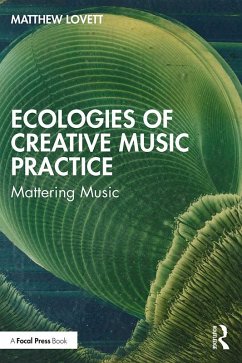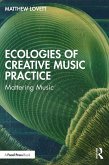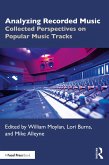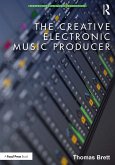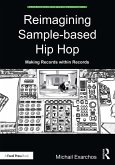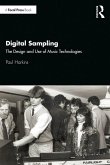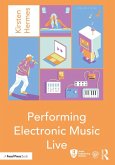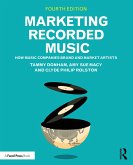- How can music work as a conceptual tool to interrogate and respond to our changing global environment?
- How have transformations in our digital environment affected how we produce, distribute and consume music?
- How does music relate to matters of political ecology and environmental change?
Within this framework, music is positioned as a starting point from which to examine a range of contexts and environments, offering new perspectives on contemporary technological and ecological discourse. Ecologies of Creative Music Practice: Mattering Music is a valuable text for advanced undergraduates, postgraduates, researchers and practitioners concerned with producing, performing, sharing and listening to music.
Dieser Download kann aus rechtlichen Gründen nur mit Rechnungsadresse in A, B, BG, CY, CZ, D, DK, EW, E, FIN, F, GR, HR, H, IRL, I, LT, L, LR, M, NL, PL, P, R, S, SLO, SK ausgeliefert werden.
Marcus O'Dair, Associate Dean, Knowledge Exchange and Enterprise, University of the Arts London
'Ecologies of Creative Music Practice reminds us that music, before it is anything else, is interdependent and environmental, embedded in various systems, ecologies, and material networks as it is: this has always been the case, but in a context of naturing-culturing anthropocenes, capitalocenes and novacenes this sort of immanent critical approach to music is more timely than ever. Taking an intriguing, adaptive ecomusicological approach in which recent trends in new materialist thinking are applied to and within various musical and music business contexts, Ecologies of Creative Music Practice brings theory and matter - the matter of theory, the theory of matter - together to illuminate the practices of music and, in turn, to use those practices to help us think differently about broader questions of technology, materialism and philosophy, and the environment. Roving across everything from video games to speculative realism, AI and blockchain to François Laruelle, and ending with a vision of music as 'ecology in motion', the book is a must read for anyone interested in creative musical practice as an assemblage or nexus of big, knotty, heavy global challenges (and vice versa). This is an intriguing book that repays close attention.'
Dr Stephen Graham, Head of School of Arts and Humanities, Goldsmiths, University of London

